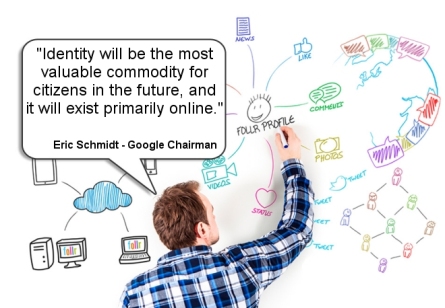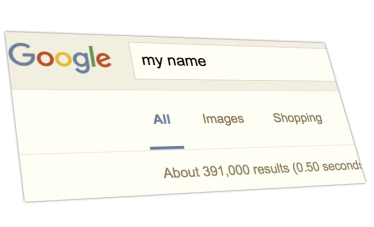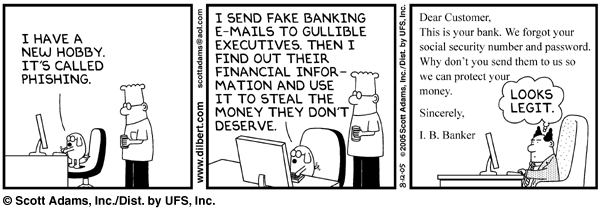What does digital identity mean? Techopedia explains that “a digital identity is an online or networked identity adopted or claimed in cyberspace by an individual, organization or electronic device. These users may also project more than one digital identity through multiple communities. In terms of digital identity management, key areas of concern are security and privacy.”

Picture: https://www.linkedin.com/pulse/future-digital-identity-application-economy-walter-bioch
I wanted to have a look at my digital identity. When was the last time you googled yourself? It has been about a year since my last time – until today. My first hit was my LinkedIn-profile, followed by my Instagram account. Then a couple of work-related hits and a chance to find my contact information from an online number service – and that’s it, mostly. Image search brought up my profile pictures from Facebook and some other social media services, but there were also many images that had nothing to do with me. I have no idea, why they came up, but however 9 out of 10 first images were actually about me or posted by myself. There’s a lot more information about me online, but that’s all private (including for example my Youtube channel and personal photos), and I like to keep it that way. I don’t want to share everything in public, just something.

Google your name! Picture: http://www.seosmarty.com/
All the information about me was correct. My profile in LinkedIn is open and everyone who’s interested can find me there. It hopefully tells of my experience and professional interests. My Instagram account probably tells a story of a nature lover and an enthusiastic jogger, since I always snap my pictures while jogging outside. If this is my digital image, I’m quite OK with it (and it is also truthful).
What if you google yourself and you find something unwanted? What if someone else would manipulate your digital identity and tag your name into something that would be hurtful or damaging? First you need to know if this content is controlled by you or someone else. If the answer is you, the solution is easy – just delete all you want. If that’s not the case, it gets harder. You can contact Google Support and ask them to remove your personal information. But even if they delete the site or image from the search results, they can’t control the existence of the webpage with that unwanted information. Nothing ever goes away once it is posted online. Google Support lists 2 important rules you should remember: restrict sharing settings for content you post online & only post to sites that let you control your privacy.
I think everyone should be able to control what you can find about them online. There are some occupations like politicians, executives and actors who are expected to expose themselves to the public eye and their success might rely on how they put their persona on display. But they are also individuals who have a right to draw the line in between their public and private lives and I think we all should respect that.

Picture: Scott Adams, dilbert.com
In business life digital privacy precautions should be considered for every employee these days. Now that our personal lives and business lives go increasingly online, it also gives a good chance for hackers to target executives or other professionals. They can collect personal information from several sources and combine the facts to make a spear phishing attack -meaning that the attacker uses this data to approach the person with tailor-made email; when they open the malicious message, the attacker gets an access to the company’s computer system and can for example steal information or blackmail the company. Research by Wombat security shows that even 33% of Fortune 500 CEOs are vulnerable to spear phishing attempts, and targeted hacker attacks are increasing. This article I referred to was about risks towards CEOs and executives, but the same risk is concerning also regular people like you and me. So it is quite justifiable to note, that oversharing personal information in social media should really be avoided. Keep your privacy and keep safe.